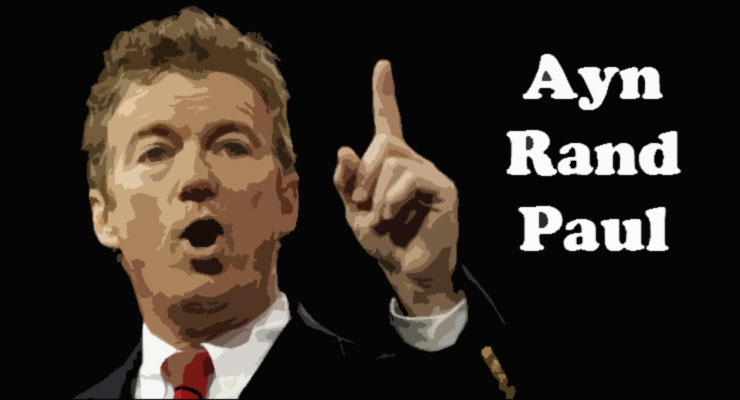
In his book “Taking a Stand: Moving Beyond Partisan Politics to Unite America,” published in 2014, Rand Paul outlined a conversation between former Inspector General of the Federal Reserve Elisabeth Coleman and former Florida Congressman Alan Grayson in regards to the oversight (or lack thereof) that Coleman had over the federal reserve. Representative Grayson had questioned Coleman about a Bloomberg report which stated that trillions of dollars in off-balance sheet transactions had been conducted by the Federal Reserve.
Coleman’s response? “We do not have jurisdiction to directly go out and audit Reserve Bank activities specifically.” To translate: we have no idea what is happening to money the Fed purloins from US citizens.
Rand Paul wants to fix that. He has once again proposed a bill that, with passage, would mandate the Government Accountability Office to conduct an audit of the Federal Reserve’s transactions “for or with a foreign central bank, government of a foreign country, or non private international financing organization,” and “deliberations, decisions, or actions on monetary policy matters,” among other things, according to bill S. 16, “the Federal Reserve Transparency Act.”
Three bills predicated around the concept of auditing the Fed have passed the House in the past, yet never passed the Senate, including a 2016 bill proposed by Paul that received 53 votes in favor of the bill, falling short of the requisite 3/5’s Senate vote to pass the bill.
Some people will tell you that the independence of the Fed is imperative to the economic stability of the country. For example, Sheila Tschinkel, former employee at the Federal Reserve, argues that “if the Fed loses its independence, then its policy will become less sensitive to what’s going on in the real world and more of a hostage to people who know far less about designing and implementing monetary policy.”
The issue with this claim is that the passage of this bill would not strip the Fed of its independence; far from it. It would not shift monetary decision making to Congress, but would rather allow the American people to know where their money is going. Paul noted in his book “when the primary auditor and overseer of the Fed was asked about nine trillion dollars, she had no clue what had been purchased with nine trillion dollars.”
What companies are being bailed out with this money? Why are these companies being bailed out? Do Reserve employees have any ties to the businesses being bailed out? Are any foreign entities receiving money via the Fed?
These are all questions that can’t be presently answered, yet could potentially be with the passage of the bill. There is no reason why a central bank created by Congress shouldn’t be subject to integrity-measures from Congress.
Leave a Reply